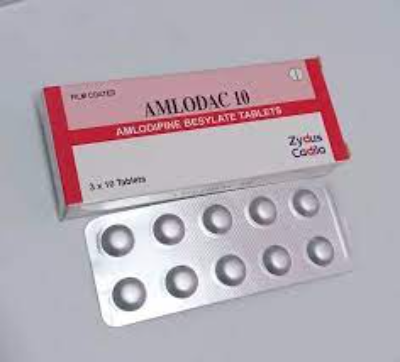


Prinzmetal angina
Prophylaxis of chronic stable angina pectoris
Treatment of essential hypertension
Initial dose: 5mg once daily.
Titrate to a maximum dose of 10mg once daily if desired therapeutic effect cannot be achieved within two to four weeks.
The following alternative dosing schedule may be suitable:
Neonates under 1 month
Breastfeeding
Cardiac failure within 1 month of a myocardial infarction
Cardiogenic shock
Left ventricular outflow obstruction
Pregnancy
Severe aortic stenosis
Severe hypotension
Unstable angina - excluding Prinzmetal's angina
Children aged 1 month to 6 years
Elderly
Cardiac failure
Hepatic impairment
Reduce dose in patients with hepatic impairment
Advise ability to drive/operate machinery may be affected by side effects
Pregnancy: This medication may inhibit labour
Abrupt withdrawal may be associated with exacerbation of angina
Not licensed for all indications in all age groups
Advise patient not to take St John's wort concurrently
Grapefruit prod increase dihydropyridine Ca channel blocker bioavailability
Amlodipine is contraindicated during pregnancy.
The manufacturer does not recommend using amlodipine during pregnancy unless there is no safer alternative or when the disease carries a greater risk. Animal studies have shown reproductive toxicity. Human data is limited and as such a potential risk cannot be ruled out.
Amlodipine is contraindicated during breastfeeding.
The manufacturer advises that the patient either discontinues amlodipine or discontinues breastfeeding. Amlodipine is present in human breast milk at an estimated interquartile range of 3%-7%, with a maximum of 15%. Effects on exposed infants are unknown
Abdominal pain
Abnormal liver function tests
Allergic reaction
Alopecia
Angioedema
Ankle oedema
Anxiety
Arrhythmias
Arthralgia
Asthenia
Atrial fibrillation
Back pain
Bradycardia
Chest pain
Confusion
Constipation
Cough
Depression
Diarrhoea
Dizziness
Dry mouth
Dysgeusia
Dyspepsia
Dyspnoea
Erythema multiforme
Exanthema
Exfoliative dermatitis
Extrapyramidal effects
Fatigue
Flushing
Gastritis
Gastro-intestinal disturbances
Gingival hyperplasia
Gynaecomastia
Headache
Hepatitis
Hyperglycaemia
Hyperhidrosis
Hypersensitivity reactions
Hypertonia
Hypoaesthesia
Hypotension
Impotence
Increased urinary frequency
Increases in hepatic enzymes
Jaundice
Leucopenia
Liver function disturbances
Malaise
Micturition disorders
Mood changes
Muscular cramps
Myalgia
Myocardial infarction
Nausea
Nocturia
Oedema
Pain - generalised
Palpitations
Pancreatitis
Paraesthesia
Peripheral neuropathy
Photosensitivity
Pruritus
Purpura
Quincke's oedema
Rash
Rhinitis
Skin discolouration
Sleep disturbances
Somnolence
Stevens-Johnson syndrome
Syncope
Thrombocytopenia
Tinnitus
Toxic epidermal necrolysis
Tremor
Urinary abnormalities
Urticaria
Vasculitis
Ventricular tachycardia
Visual disturbances
Vomiting
Weight changes